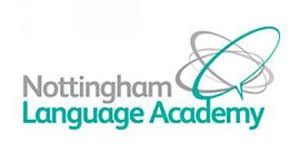
Finance for Non-Financial Professionals
Course ID: 2507074501079EGI
Course Dates : 07/07/25 Course Duration : 5 Studying Day/s Course Location: Istanbul, Turkey
Language: Bilingual
Course Category: Professional and CPD Training Programs
Course Subcategories: Finance and Accounting Mastery
Course Certified By: * Projacs Academy
* Professional Training and CPD Programs
Certification Will Be Issued From :
KSA
Course Fees: £3,430.88
Vat Not Included in the price. VAT may vary depending on the country where the course or workshop is held.
Click to Pay
Date has passed please contact us Sales@e-s-hub.com
Course Information
Introduction
The ability to comprehend financial principles is no longer confined to accountants or finance professionals. In an increasingly data-driven business environment, non-financial professionals are often required to make decisions that have significant financial implications. Whether it’s approving budgets, analyzing project costs, or evaluating investment opportunities, a foundational understanding of finance empowers individuals to contribute more effectively to organizational success. This course bridges the gap between technical financial knowledge and practical application, equipping participants with the tools to navigate financial discussions confidently.
One of the primary challenges faced by non-financial professionals is the perception that finance is overly complex or inaccessible. Terms like "EBITDA," "cash flow," and "balance sheets" can seem daunting without proper context. However, these concepts are integral to strategic decision-making across all departments. For instance, a marketing manager planning a campaign must understand how their budget allocation impacts overall profitability. Similarly, an operations director overseeing supply chain logistics must evaluate cost-efficiency measures. This course demystifies financial jargon and provides actionable insights into its real-world relevance.
Consider the case of a mid-sized manufacturing company that struggled with declining margins despite robust sales growth. Upon investigation, it was revealed that department heads lacked visibility into key financial metrics such as gross margin and inventory turnover. By implementing cross-functional training in financial literacy, the organization not only improved operational efficiency but also fostered a culture of accountability. Such examples underscore the importance of integrating financial acumen into diverse professional roles.
Drawing on established frameworks like Porter’s Value Chain and Kaplan and Norton’s Balanced Scorecard, this course emphasizes the interconnectedness of financial and non-financial performance indicators. Participants will explore how financial statements serve as a diagnostic tool for identifying strengths and weaknesses within an organization. Furthermore, they will learn to align their functional objectives with broader corporate goals, thereby enhancing their value proposition as leaders and contributors.
Industry trends highlight the growing demand for interdisciplinary skills. According to a report by the World Economic Forum, analytical thinking and financial literacy rank among the top ten skills required for future jobs. As organizations adopt leaner structures and flatter hierarchies, employees at all levels are expected to take ownership of financial outcomes. Mastering the content of this course positions individuals as indispensable assets capable of driving sustainable growth.
Ultimately, the benefits extend beyond individual career advancement. Organizations that invest in financial education for their workforce experience improved communication, better resource allocation, and enhanced profitability. By fostering a shared language around finance, businesses can break down silos and promote collaboration across departments. This course serves as a catalyst for transforming non-financial professionals into informed decision-makers who contribute meaningfully to their organization’s financial health.
Objectives
By attending this course, participants will be able to:
Analyze financial statements to assess organizational performance and identify areas for improvement.
Evaluate the impact of budgetary decisions on cash flow and profitability using industry-standard tools.
Design cost-effective strategies for projects or initiatives while adhering to financial constraints.
Apply key financial ratios and metrics to benchmark performance against competitors and industry standards.
Implement best practices for communicating financial information to stakeholders in a clear and compelling manner.
Who Should Attend?
This course is ideal for:
HR managers seeking to understand compensation structures and workforce planning from a financial perspective.
Marketing and sales professionals tasked with managing budgets, forecasting revenues, or justifying expenditures.
Operations and supply chain leaders responsible for optimizing costs and improving efficiency.
Consultants and educators aiming to broaden their expertise in advising clients or students on financial matters.
Training Method
• Pre-assessment
• Live group instruction
• Use of real-world examples, case studies and exercises
• Interactive participation and discussion
• Power point presentation, LCD and flip chart
• Group activities and tests
• Each participant receives a 7” Tablet containing a copy of the presentation, slides and handouts
• Post-assessment
Program Support
This program is supported by:
* Interactive discussions
* Role-play
* Case studies and highlight the techniques available to the participants.
Daily Agenda
The course agenda will be as follows:
• Technical Session 08.30-10.00 am
• Coffee Break 10.00-10.15 am
• Technical Session 10.15-12.15 noon
• Coffee Break 12.15-12.45 pm
• Technical Session 12.45-02.30 pm
• Course Ends 02.30 pm
Course Outlines
Foundations of Finance
Introduction to Financial Statements (Balance Sheet, Income Statement, Cash Flow Statement).
Key Financial Terminologies and Their Practical Applications.
Understanding Revenue, Expenses, Assets, and Liabilities.
Case Study: Interpreting Financial Health Through Real-World Examples.
Day 2:
Budgeting and Forecasting
Principles of Budget Preparation and Allocation.
Techniques for Accurate Financial Forecasting.
Managing Variances Between Actual and Projected Figures.
Workshop: Creating a Departmental Budget Plan.
Day 3:
Financial Analysis and Decision-Making
Introduction to Financial Ratios (Liquidity, Profitability, Leverage).
Evaluating Return on Investment (ROI) for Projects and Initiatives.
Break-Even Analysis and Its Role in Strategic Planning.
Group Activity: Analyzing a Business Case Using Financial Metrics.
Day 4:
Cost Management and Optimization
Fixed vs. Variable Costs: Implications for Business Decisions.
Strategies for Reducing Operational Costs Without Compromising Quality.
Activity-Based Costing and Its Applications.
Interactive Session: Identifying Cost-Saving Opportunities.
Day 5:
Communicating Financial Insights
Presenting Financial Data Effectively to Non-Financial Stakeholders.
Storytelling with Numbers: Making Complex Data Accessible.
Best Practices for Writing Financial Reports and Proposals.
Final Exercise: Delivering a Financial Presentation to Peers.



















































